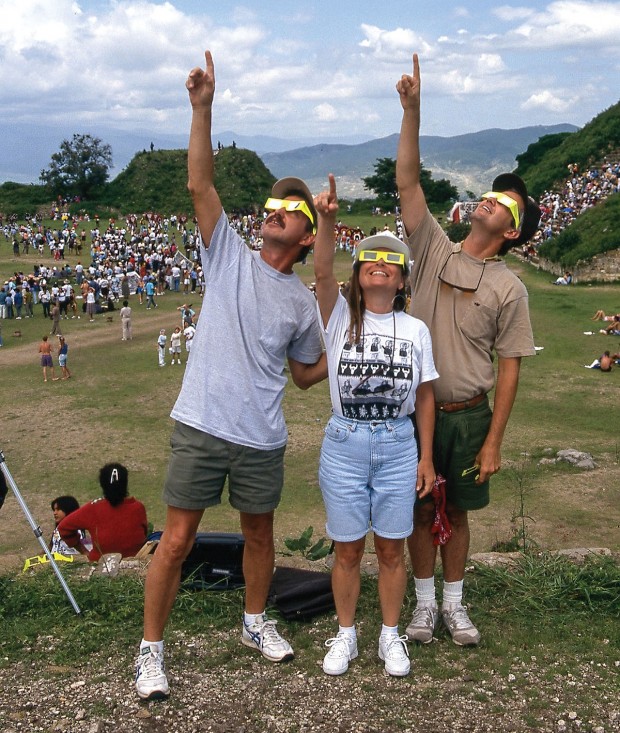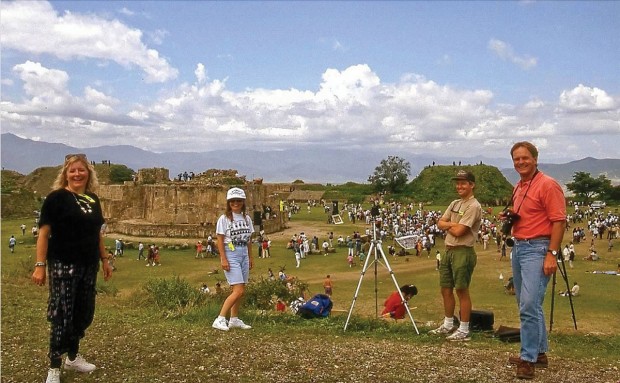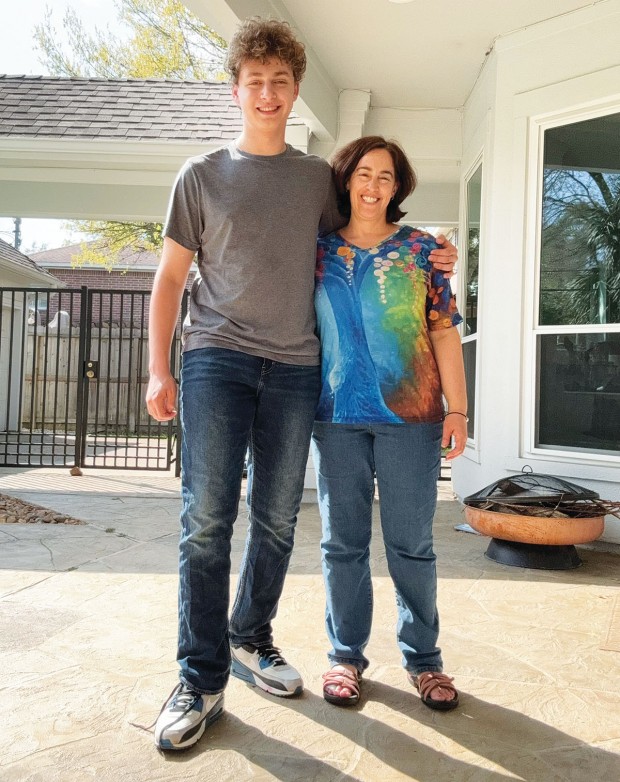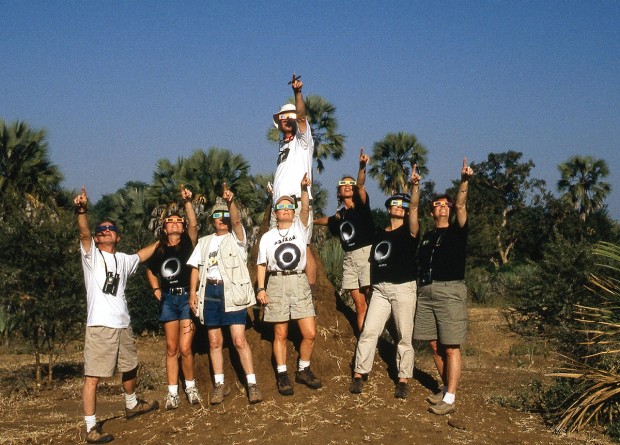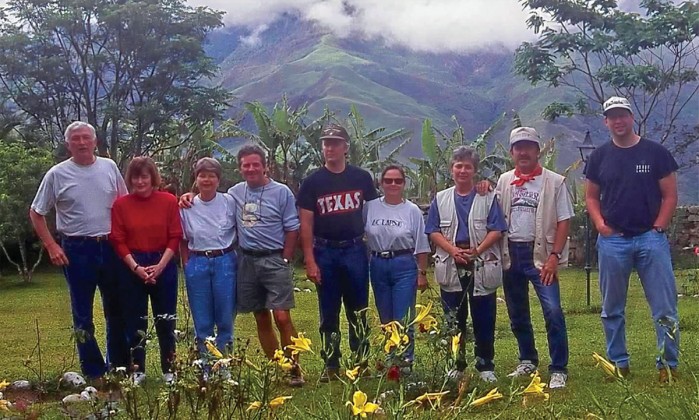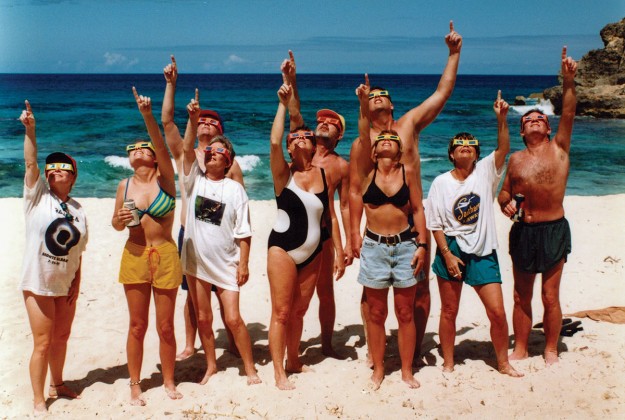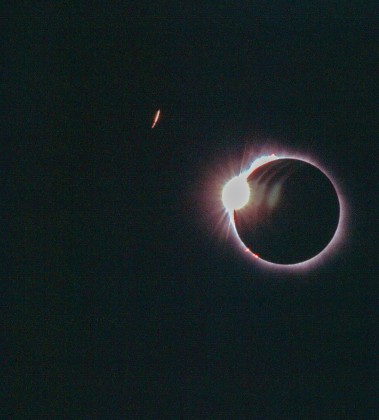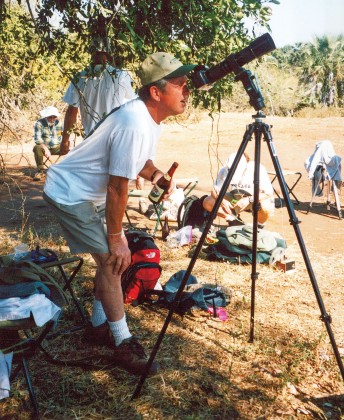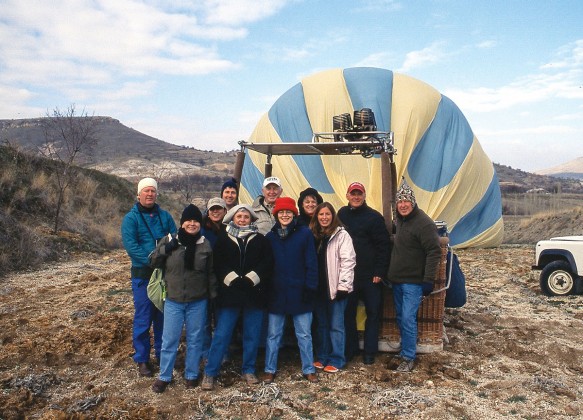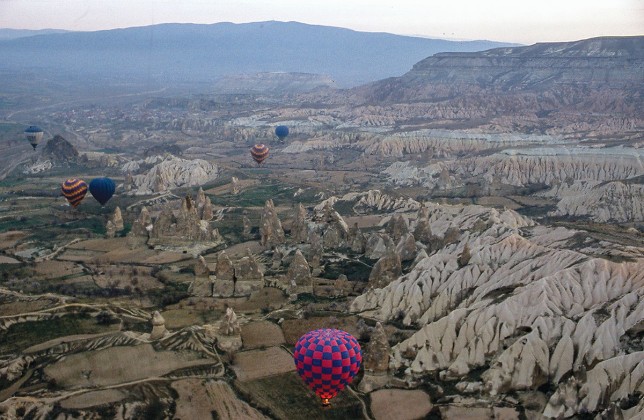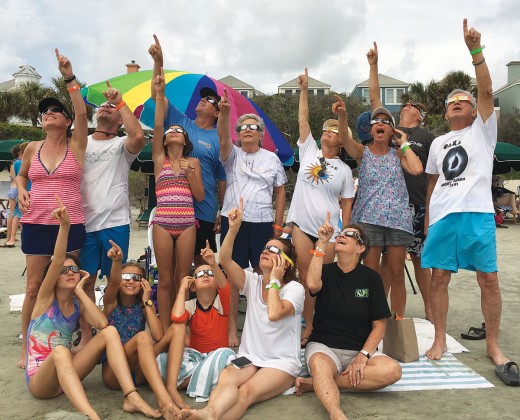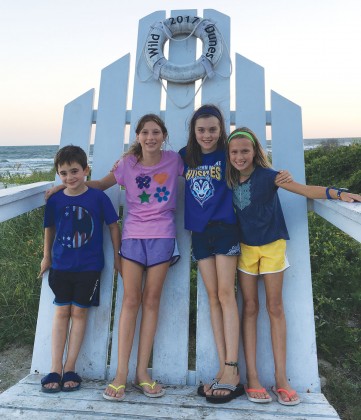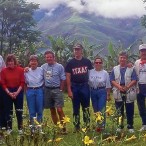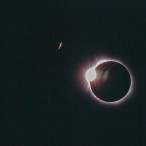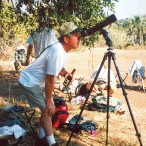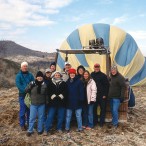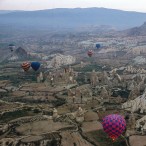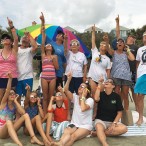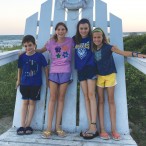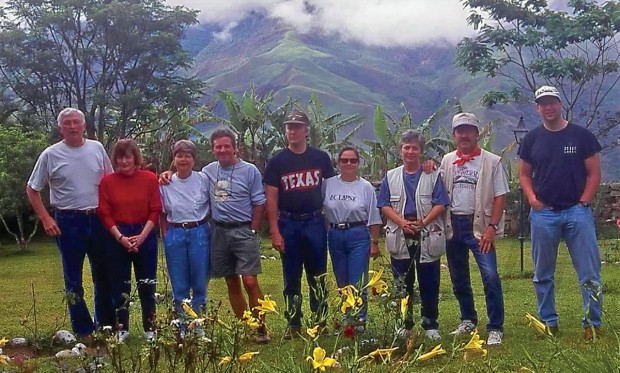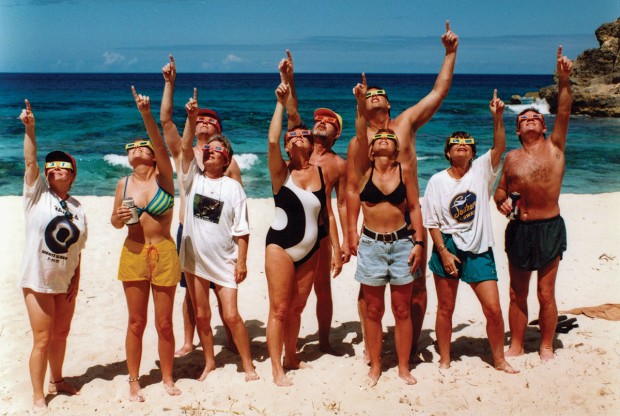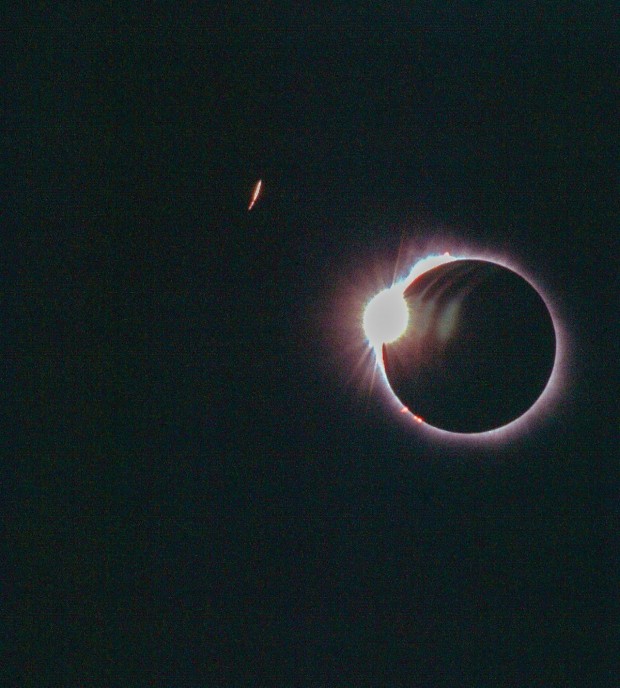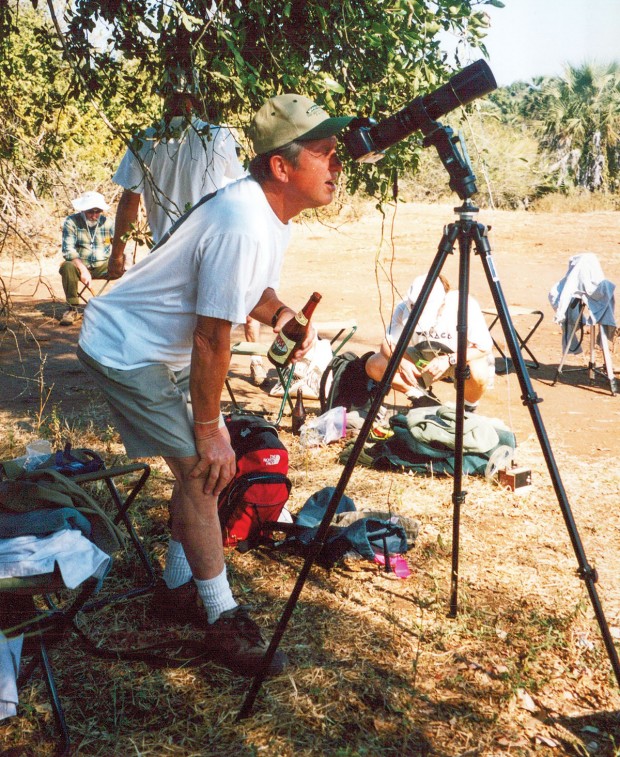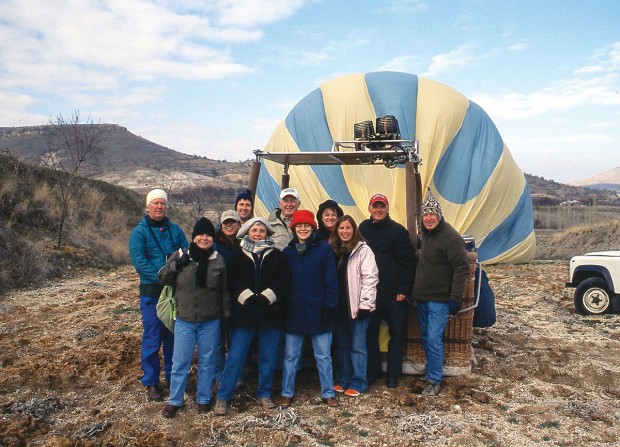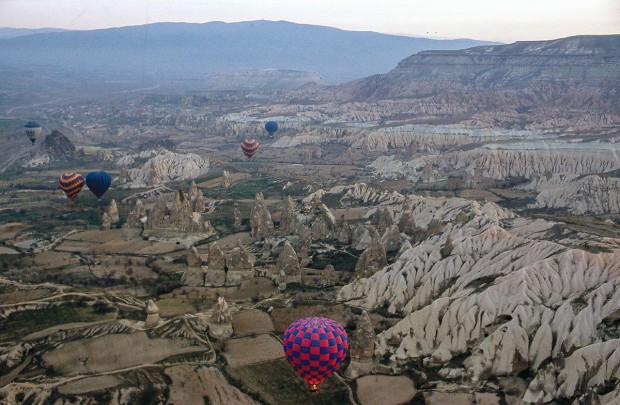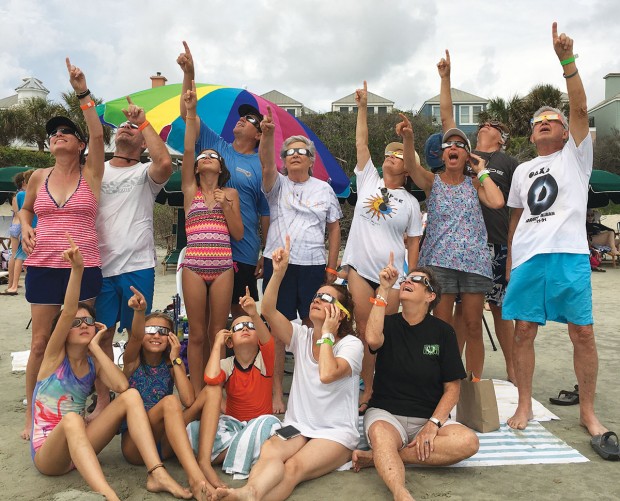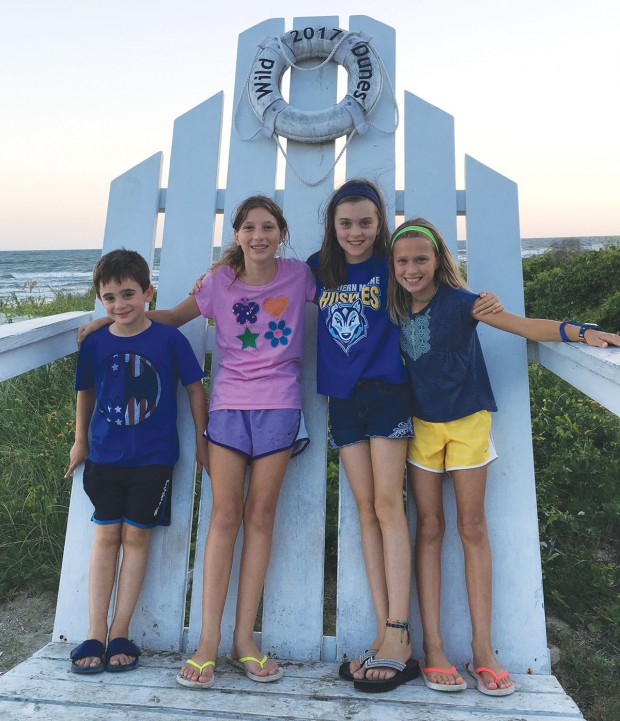Countdown to Totality
Houstonians Prepare for Rare Solar Eclipse

Joe Keathley, an eclipse veteran who at 83 has been chasing these spectacular cosmic events around the world for more than 30 years, and Ike Diamond, 15, a student at Xavier Academy, are two of the local folks who will be setting their sights on the skies come April 8. That's the date of Texas’ first solar eclipse in 146 years, and its last for another 21.
For Ike, it’s his first eclipse, and he has no idea what to expect. For Joe, it’s quite likely to be his last. And for the first time, it will be close to home: the line of totality passes over his ranch in Pearsall.
It all started for Joe, a retired salesman and part-time rancher, in 1991, when he heard about an upcoming trip scheduled by the Houston Museum of Natural Science to Oaxaca to see the eclipse. It would be an unusually long eclipse, plunging parts of Mexico and the Caribbean into darkness for almost seven minutes. Joe found a contact who helped him set up his own itinerary and he invited his buddy Scott Langdale, and Scott invited his girlfriend, Lynne Covey. Thus began Joe’s tradition of colorful, off-the-beaten-trail itineraries assembled with the help of a personal contact from the destination country.
The trio booked flights to Mexico City and on to Oaxaca City, renting a car and driving over the mountains to explore the Oaxaca coast, from Puerto Ángel to Puerto Escondido. Then they headed back up to Oaxaca City in the culture-rich highlands. Monte Albán, the archaeological site that contains the remains of an ancient Zapotec metropolis, would be the impressive site of their first total solar eclipse.
“We were hooked, and set our sails on that day for what has become a lifetime pursuit,” Joe recalls in his brand-new self-published book, The Lucky 7. That seven minutes set him on a course that took him on seven adventures in more than a dozen different countries, as far-flung as Romania, Zambia, and Turkey. What they all had in common was an opportunity to gather with friends and family and immerse themselves in new cultures and landscapes – and then, the unmatchable experience of a total solar eclipse.
“You watch it for the first time with your glasses on and you don't know what to expect,” he explained. “It starts when you see ‘first contact,’ when the moon first touches the sun. And it goes from there… It's unimaginable. Your heart starts beating, your hair stands on end, and you have this feeling you want to cry – it’s just spectacular.”
Ike, for his part, is excited, but a little bit skeptical; he doesn’t have a good sense of how it will be. Like hundreds of thousands if not millions of others, the Diamonds will be traveling to the Hill Country to see three minutes of totality. They’ll be camping out at Camp Young Judaea near Wimberley.
“I'd imagine that, like, when I see it, it'll look a lot like night. I see why it's interesting because this is a rare solar eclipse, but I don't see why it's such a big deal.”
His mother, Farell, laughed. “It’ll blow his mind,” she predicted. It will be her first eclipse as well, but she’s heard enough to know.
Joe, for his part, will be joining family and friends on his ranch in Pearsall, and will be taking plenty of provisions for a long stay, as he’s anticipating unprecedented traffic conditions.
“This one is going to be a madhouse, if you don’t know what you’re doing,” he said. It will be a very different experience for him than his previous eclipse adventures. “Not only will there be no exotic road trip but it will be passing over 12 million people in the cities of San Antonio and Austin, Waco, Dallas and Fort Worth, plus all the people that will be packed into the Texas Hill Country.”
Dr. Carolyn Sumners, vice president of astronomy at the Houston Museum of Natural Science, explains that Houston will reach 94 percent of totality. What makes this eclipse so different from others in our lifetimes is that it will be passing over major populations; indeed, it’s the first time Texas has experienced totality since 1878, and it’s the last time until 2045, “so for most Texans, this is ‘the’ Texas eclipse,” she said.
For those who want to experience full totality, she recommends having your site identified ahead of time and leaving well before the actual eclipse event to reach a point somewhere along the 115-mile band of totality.
The eclipse will enter North America around Mazatlan, on Mexico’s west coast, crossing the border into Texas near Del Rio, sweeping across the state, and leaving at Texarkana before crossing through a wide swath of the Midwest and the Northeast. In Texas, the Hill Country will be Ground Zero, with Austin and Waco right on the centerline; the western half of San Antonio will be included, as will much of Dallas/Fort Worth.
As with all solar eclipses, Sumners warns, it is important not to look directly at the sun without eclipse glasses or a good filter because the intensity of the light can burn the retina, causing permanent damage to the vision.
The museum is offering an eclipse outing at LoneHollow Ranch in the Texas Hill Country. For those who will be in Houston, the museum will host a viewing event through the whole range of the eclipse, with a wide range of safe viewing options: eclipse glasses, pinhole projectors, telescopes equipped with special filters.
That said, there’s nothing like totality, as those who have seen it agree.
“The temperature will drop, and you’ll say, ‘This is weird,’” said Sumners. “The sky won’t look right, the air won’t feel right, the ground won’t look right; everywhere that shadows are being cast, they will be eclipse shadows.”
That’s what Joe and his band experienced time and again: first in Oaxaca, in 1991, and then in Northern Chile in November of 1994. At Monte Albán, he befriended Tekla and Richard Sanford, a couple from California who are wine producers, and they kindled a lasting friendship. Richard mentioned he knew of a place in Northern Chile that would be ideal to watch the next eclipse. So the group quickly decided to meet in La Paz, Bolivia, and take the opportunity to explore the two neighboring countries.
This time, Joe’s wife Pat joined him, along with his brother Mo, friends Scott and Lynne, and other friends. In subsequent years, their daughters Kim and Kelly would join them, as well. With the help of a native of La Paz that Joe found through his networks, he planned an itinerary taking them through the Andean highlands of Lake Titicaca and the tropical lowlands to the south, shopping for weavings among the Aymara ladies with their little bowler hats and petticoats and pollera skirts.
Then it was a flight over the Andes to Arica, the northernmost town in Chile, on the Pacific Coast. And then it was up into the Andes to the town of Copaquilla near Putre, Chile, where it hadn’t rained for 100 years. That’s where they would watch Eclipse No. 2.
Their travels in subsequent years are detailed in his book. The book is rich with Joe’s color photography of the places he has visited in his eclipse sojourns, revealing his deep love for culture and for the humanity of his subjects – as well as his love for a good party, especially a good eclipse party.
Sun, sea, and sand provided the backdrop for their next eclipse in the French West Indies on the island of Guadeloupe, in 1998; the serendipity of the island’s traditional Carnival celebration was the cultural icing on the cake. They wouldn’t have to wait long for the 1999 eclipse, which was epic; they flew into Germany, rented a car, drove through Austria and Hungary, and ended up on Romania’s Black Sea for the big event. The accountant for Joe’s company, who was from Romania, helped plan that itinerary. “All this driving to see an eclipse of less than only one minute,” commented Joe. He forgot to focus his lens, but at the very last moment he remembered and got one good shot.
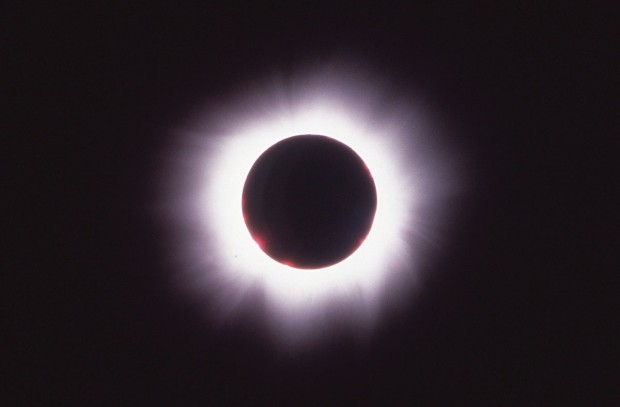
Joe was able to capture photography of seven eclipses between 1991 and 2017, and now at the age of 83, is preparing to photograph what he believes will probably be his last one.
Africa followed, in 2001, beginning with a bow hunt in South Africa. They followed that with a luxury safari camp in Zambia on the lower Zambezi River, where the moans of hippos and the cries of bush babies sang them to sleep. An astronomer who worked at the Hubble Telescope accompanied the group on that eclipse day, bringing his gear with him to give them all the inside scoop on the celestial event.
It was five years before Joe found himself planning a Turkey itinerary – this time with the help of a Turkish astronomer he found on the Internet. Their tour included an unforgettable hot-air balloon ride over the fairy castles of Cappadocia, tours of an ancient Roman city with an amphitheater, and a front-row seat to the eclipse on the Mediterranean coast in Antalya.
It wasn’t until 2017 that Joe and Co. decided to set off for another eclipse adventure – this one, for the first time, right in the USA. “We have now grown from three in Mexico to 14 on the beach in South Carolina,” he reported in his book’s last entry; this time, they were joined by four grandchildren.
Once again Joe called on a friend from his chosen spot – in this case, Charleston, S.C. – and the friend did not let him down. Their 2017 eclipse was at the Wild Dunes Resort, perfect for their wild and crazy gang. Lots of fine dining was on the itinerary, along with sightseeing along the Mt. Pleasant coastline, and mostly, enjoying each other.
Looking forward to Eclipse 2024 is bittersweet. On the one hand, it’s a small miracle that the line of totality will be crossing his ranch, and many friends and family will be joining him there. But there’ll be no road trip, his favorite part of all of his adventures until now. The roads will be too packed for any kind of spontaneous tourism.
“I’ll be 84 this fall, and things change,” he mused. “You can’t look forward to things because of the things that happen physically. If my wife could still travel, though, I'd probably be planning another one.”
One thing’s for sure, though. After spending many hours combing through his 1,200 slides (not to mention the countless prints), reading through his and Pat’s notes, finding a designer and writing and rewriting the draft of his book, he can finally sit back, grab a beer, and relax.
It’s been one heck of a ride. And, to be sure, it still is.
“Even if you can’t see totality, everyone in Houston will be able to see a part of the eclipse,” Joe said. So get your eclipse glasses, go outside and see something you may never see again.”
Editor's note: For another out-of-this-world eclipse story, read Eclipsed! A Love Story: Will she, or won't she? by Cindy Gabriel, also in this issue.
Want more buzz like this? Sign up for our Morning Buzz emails.
To leave a comment, please log in or create an account with The Buzz Magazines, Disqus, Facebook, or Twitter. Or you may post as a guest.


